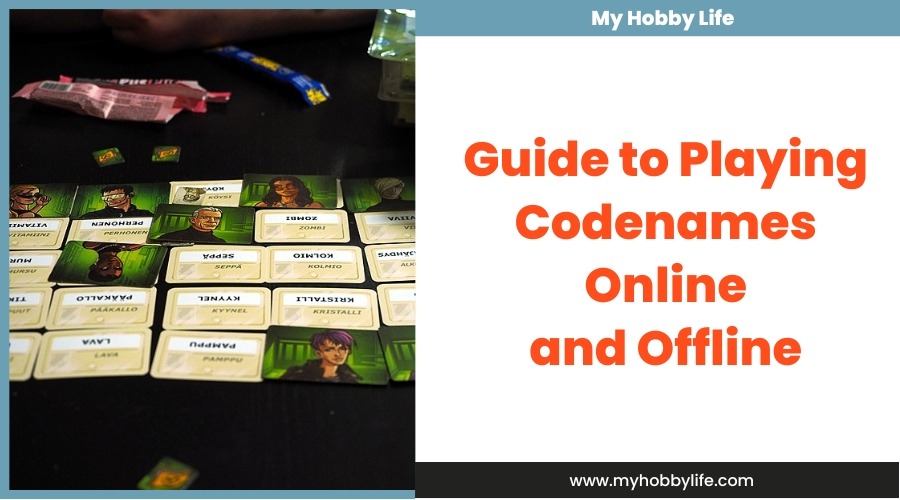Guide to Playing Charades Online and Offline

This game is well known, and there's a reason for its popularity. Charades is a favorite game night pick since it can quickly get ridiculous. You must stand in front of everyone and act out a book title, famous person, movie title, and so on. This immediately breaks the ice and forces individuals out of their comfort zones. Although you may not feel comfortable performing in front of others, even your friends and family, you will be unable to resist joining in once you understand that furiously waving your hands around with insane facial expressions is all part of the fun.
How do you play charades?
Charades is a game of gestures and acting. One individual is given a word or phrase and is then required to behave and utilize gestures without making any noises to signal to their colleagues what that word or phrase is. The team earns a point if the teammates can understand the word using gestures and acting. What makes charades so enjoyable is that, although the rules and premise of the game are simple, trying to transmit the phrase via gestures to your colleagues may frequently be significantly more difficult than you anticipated. The game will be filled with amusement, pleasure, and laughter as a result of the paradox of it seeming easy but really being quite challenging.
How many players may participate in charades at once?
There isn't really a limit to how many individuals can participate in charades at once. Though charades may be played with as few as two players, a minimum of three players is required for a really competitive game.
How long do charades participants have to guess?
The standard time limit for guessing a charade word is three minutes. This is not a given. You may change the time period based on the party you're playing with and how challenging you want the game to be. When playing charades, any time restriction is permitted as long as both teams adhere to the same time limit.
Equipment Required
- Charades phrases, which you can either generate online or write down on paper
- Stopwatch to track time
- Notepad and pen to record score (or you can keep score on your phone)
Setting up the Game
1. Form equal teams of players
Technically, even teams are not required to participate, but every additional member on the other side is one more person who might guess the solution. Once teams have been formed, send them to different rooms, or at least opposing sides of the same room.
You might also play a less competitive variant of this game in which participants act out a word or phrase, and anybody can respond. Usually, the one who gets it right first is the one who acts it out.
If you're not playing with teams, have the player act out a phrase they've chosen on their own. This may make the game easier to play by removing the requirement for slips of paper.
2. On pieces of paper, write words or phrases
Put the teams in separate rooms (or at least on different sides of the room), and now jot down any common words or phrases on slips of paper using a pen or pencil. Save these a secret! When it is the other team's turn, they will choose these phrases at random from a hat.
- In classic charades, there are six standard categories: book titles, movie and TV program names, song and play titles, and well-known lines or phrases.
- Long sentences and foreign words are often not permitted. If unsure, ask your teammates. It should be okay if half of you have heard it previously.
- Don't include even one proper name on the slip. A player will struggle if they don't know who the individual is without context.
3. Place the slips in a container after folding them in half
Fold each slip of paper in half to conceal the word or phrase. Place these slips in a container and rejoin the opposite team in the gaming area. Don't glance at the slips of paper when you exchange containers.
Baskets or hats are traditional containers for the slips, but you may be inventive in a pinch. Use a pillowcase or an empty drawer from a coffee table.
4. Use a coin toss to choose the beginning team and establish a time limit
To decide which team goes first, flip a coin (or something similar). Each round is normally timed, however this may be adjusted based on the age group and skill level of the participants. Two minutes might be an excellent starting point.
- You don't have to apply a time restriction if you don't mind rounds lasting a long time. Teams would guess until they gave up in this scenario.
- You may wish to decide on a punishment at this point for anyone who talks when they should simply be pointing. You may, for instance, lose a half-point or the round.
Getting into the Competition

1. Instruct the beginning player to draw a slip
The game starts with the team that won the coin toss. They should pick one person to play a slip first. Before anyone on a team can go again, they all have to act out a slip at least once.
If you can't decide who should go first, have the winner of a quick game of rock, paper, scissors pick a strip and start the game.
2. Provide broad information to assist your team in narrowing their guesses
The category and amount of words in the phrase will help your colleagues narrow their predictions. You may make up your own gestures, but usually:
- At the start of a turn, holding up a number of fingers signifies the entire amount of words.
- Adding another number of fingers signifies the first word you'll act out.
- Counting your fingers on your arm represents the number of syllables in the word.
Broadly sweeping your arms across the air denotes "the complete notion."
3. Act things out until your team gets it correctly or until time runs out
Some gestures that you believe would be amazing turn out to be a flop. Don't be afraid to try something new. The more suggestions you provide your team via gestures, the more probable it is that they will figure it out.
- When your team correctly guesses the answer, the round is over and your team receives a point. The procedure is then repeated by the opposing side.
- If your team fails to predict the correct answer before time runs out, your team skips the turn without receiving a point, and the other team tries.
4. Continue playing until you run out of slips or until there is a clear winner.
You don't have to stop having fun if you and your pals are having a good time. Divide and rewrite some new slips. In rare situations, a team may have a few really good players, creating an imbalance. Reorganize teams to make things more equitable.
Where are common charades gestures you can use?

If you're going to play charades, it's a good idea to know the typical gestures that are used in the game since they may help you or your team answer a lot of the charades words more simply. These typical charade movements may help narrow down the word, making guessing it much simpler. Below are some of the most popular charades gestures you're likely to see or utilize to help your team perform better.
Word Count: A single word or a brief phrase may be used as a charade. Solving the charade may be made considerably simpler if you are aware of the required word count. Simply holding up the number of fingers that matches to the number of words in the charade will show how many words your team is guessing.
Syllable Count: The number of syllables in a word in a charade may be helpful in much the same way that knowing the number of words in a charade can be helpful in narrowing down the options. The number of fingers may be placed against your forearm to represent the number of syllables in a word.
Short Words: Knowing whether or not a charade word is short makes it much simpler to guess. By bringing your thumb and index finger together, you might signal that the charade word your team is attempting to predict is short.
Long Words: When attempting to predict a charade word, teammates will benefit from knowing whether it is lengthy. You may hold your thumb and index finger widely apart to indicate a word's length.
Words That Sound Alike: If you have a tough charade word, one method to enhance your colleagues' chances of getting it is to tell them it sounds like another word. This is particularly useful if the term it sounds like is quite obvious to your colleagues. Holding your cupped palm behind your ear indicates that your charade word sounds like another word.
Plural Words: Plural words might be tough for teammates to predict since most people expect the term to be single. If you need to let your teammates know that the charade word is plural, connect your small fingers together.
Taking a few minutes to ensure that everyone on your team understands these basic charade gestures may yield big returns. While it may not seem to be much, these frequent motions may make it much simpler to identify phrases and help your team perform much better, particularly when compared to people who do not know or understand these signals.
Conclusion
Charades is a game for people of all ages. It entails performing words or phrases written on a scrap of paper. The goal is for your team to guess the solution only using gestures. A player is not permitted to speak while acting out the word or phrase. This game involves little planning, a lot of creativity, and is a lot of fun.



